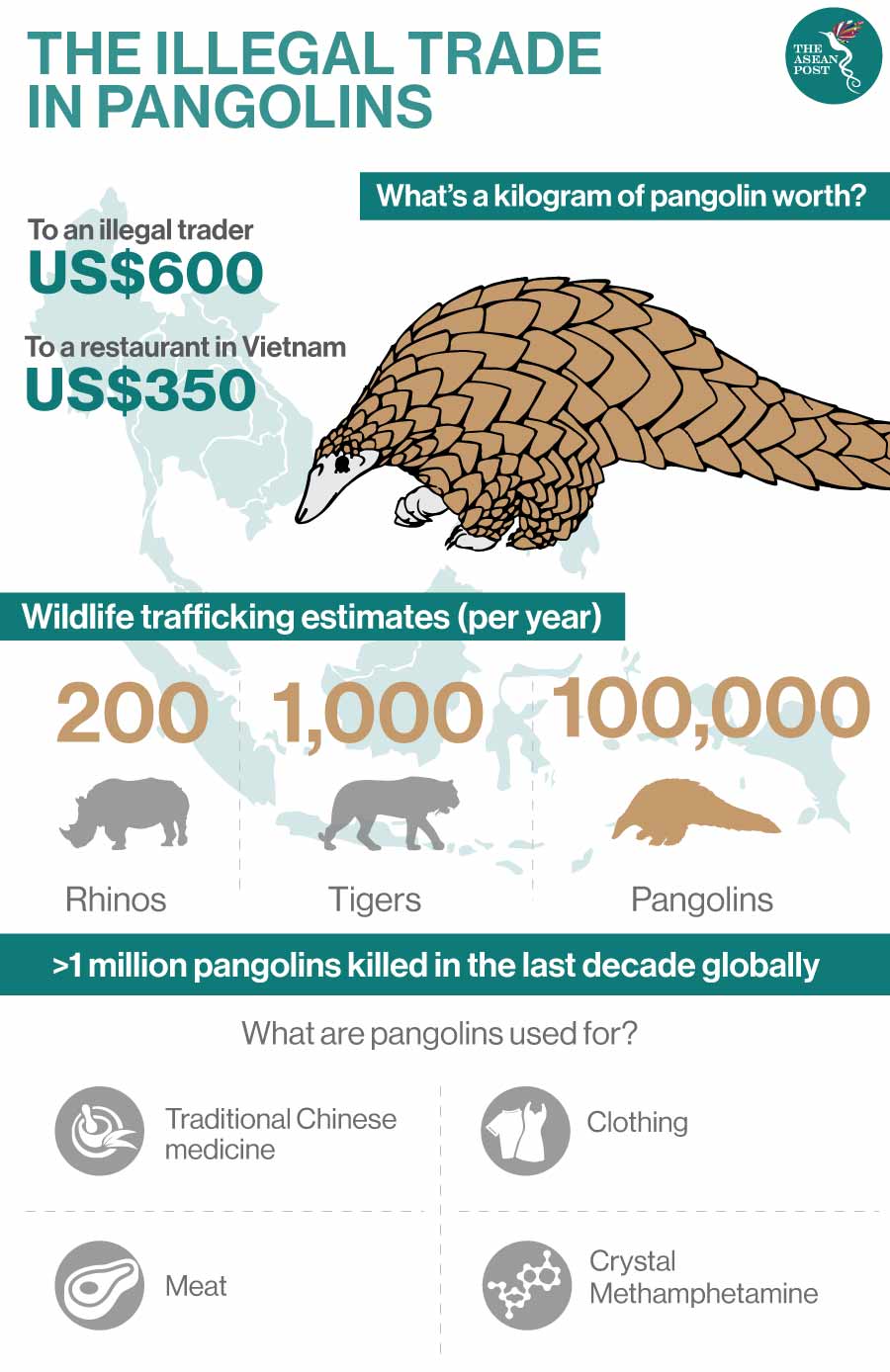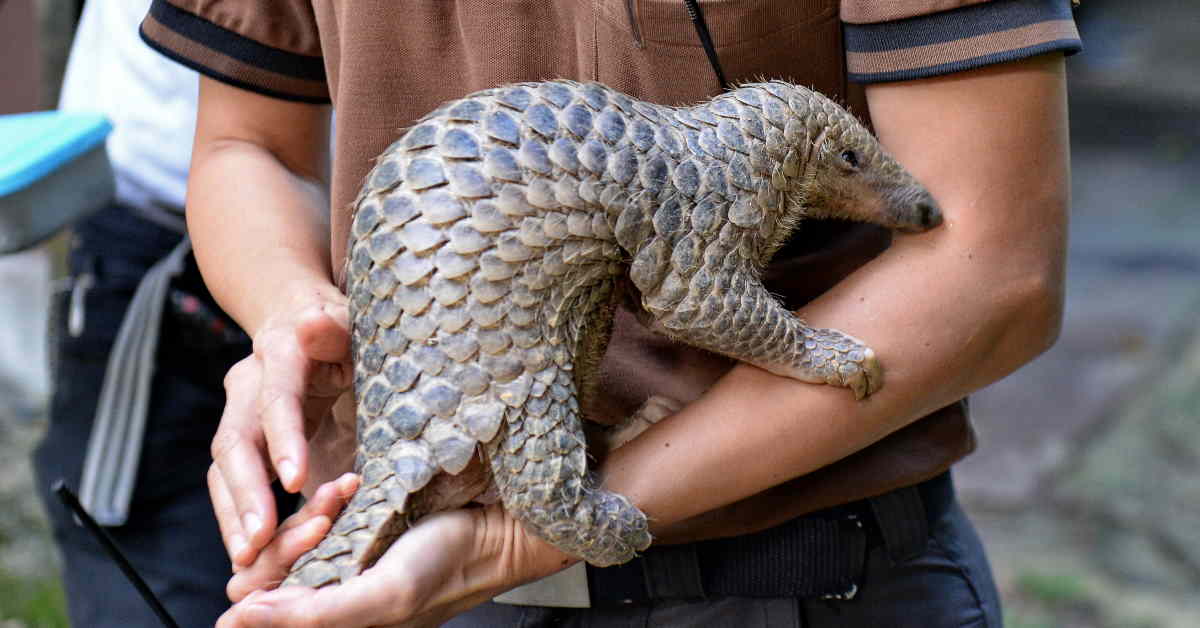It was reported that nearly 900,000 pangolins are believed to have been trafficked across Southeast Asia in the last 20 years. As the world is currently battling the coronavirus pandemic which some experts claim may have been passed on to humans from pangolins; conservationists are calling for a global ban on wildlife trading. This includes the illicit poaching and trade of the little-known creature.
Pangolins are said to be the most widely trafficked mammal in the world. All eight pangolin species – which are native to Asia and Africa – are now categorised as “vulnerable”, “endangered” or “critically endangered” according to the International Union for Conservation of Nature (IUCN) Red List of Endangered Species.
Four of the species found in Southeast Asia are largely concentrated in Indonesia while the other four can be found in Africa, but all of them are threatened by the false belief that their scales can heal a multitude of diseases.
Last year, Singapore seized a world record 25.6 tonnes of pangolin scales in just five days. After seizing 12.9 tonnes of pangolin scales in early April 2019, Singapore then seized another 12.7 tonnes a few days later. In both instances, the scales were in containers on their way to Vietnam from Nigeria. The previous record seizure of pangolin scales was in Shenzhen, China, in 2017, when 11.9 tonnes were seized. Altogether, it is estimated that the scales were from 38,000 pangolins and worth US$76.5 million.

According to research conducted by wildlife trade monitoring network TRAFFIC, 20 tonnes of pangolins and their body parts are being trafficked every year. However, due to the elusive nature of the shy and nocturnal pangolin, there is relatively little data on global population numbers.
Malaysia also found itself in the pangolin spotlight last year when 29.8 tonnes of pangolin and pangolin products were seized in early 2019. In a recent report, TRAFFIC also noted that over 96,000 kilograms of the creatures' scales were seized in Malaysia, Singapore and Vietnam between 2017 and 2019 alone.
"Not a day goes by without a wildlife seizure taking place in Southeast Asia, and all too often in volumes that are jaw dropping," said Kanitha Krishnasamy, director for TRAFFIC in the region.
Sunda pangolins in Indonesia are at risk of extinction because of an illicit trade that sees thousands of the critically endangered animals trafficked each year. The archipelagic nation, one of the last strongholds of the Sunda pangolin, loses up to 10,000 pangolins a year to illegal trade despite significant enforcement success.
TRAFFIC has also identified Sumatra as a hotspot for the trade which serves as a key link to smugglers in Malaysia and Singapore, where the animals are most often sent on to China and Vietnam.
While Indonesia is a huge archipelagic nation with limited resources to monitor all its sea routes, TRAFFIC has advocated for increased monitoring and investigation as well as stronger multi-agency co-operation to address the illegal wildlife trade. Apart from that, TRAFFIC also suggested “inducing behaviour change in consumption countries, so that the demand for pangolin products can be decreased.”
In the wake of the COVID-19 pandemic, many have urged for the total ban of wildlife trading. A recent study by United States (US)-based researchers revealed that new diseases such as the COVID-19, could become more common as human activity destroys habitats and forces disease-carrying wild animals into ever-closer proximity with humans.
Christine Johnson, from the University of California's School of Veterinary Medicine, lead author of the research suggested: "Once we move past this public health emergency, we hope policy makers can focus on pandemic preparedness and prevention of zoonotic disease risk, especially when developing environmental, land management, and animal resource policies."
This article was first published on 18 April, 2020.
Related articles:
